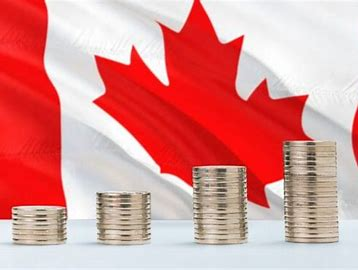Featured
article
- Get link
- X
- Other Apps
Canada's Economy Contracts Unpredictably: Central Bank's Cautionary Outlook

Canada’s economy unexpectedly contracted in the second quarter of 2023 at an annualized rate of 0.2% . The growth was most likely flat in July. This result will probably allow the central bank to hold rates amid a possible recession . The second-quarter reading was far lower than the Bank of Canada’s (BoC’s) forecast for a 1.5% annualized GDP growth as well as the 1.2% gain expected by analysts . The quarterly slowdown was largely due to declines in housing investment and smaller inventory accumulation as well as slower international exports and household spending. In June, Canadian wildfires adversely impacted multiple industries, including mining and quarrying and rail transportation.
The figures “leave little doubt that the Bank of Canada will keep interest rates unchanged next week,” said Stephen Brown, deputy chief North American economist for Capital Economics. The central bank hiked its benchmark overnight rate to a 22-year-high of 5.0% in July, the tenth increase since March of last year. Since then, the bank has said its future moves would depend on its reading of the data, which have been mixed.
In conclusion, Canada’s economy has contracted unexpectedly in Q2 2023, and growth was most likely flat in July. This result will probably allow the central bank to hold rates amid a possible recession. The quarterly slowdown was largely due to declines in housing investment and smaller inventory accumulation as well as slower international exports and household spending. The Bank of Canada is expected to keep interest rates unchanged next week, given the recent economic data.
Popular Posts
Trump's Six Words: "I'm Going to Stop the Wars"
- Get link
- X
- Other Apps
Smart Savings for a Sharp School Start: Canadian Parents’ 2025 Guide
- Get link
- X
- Other Apps



Comments
Post a Comment